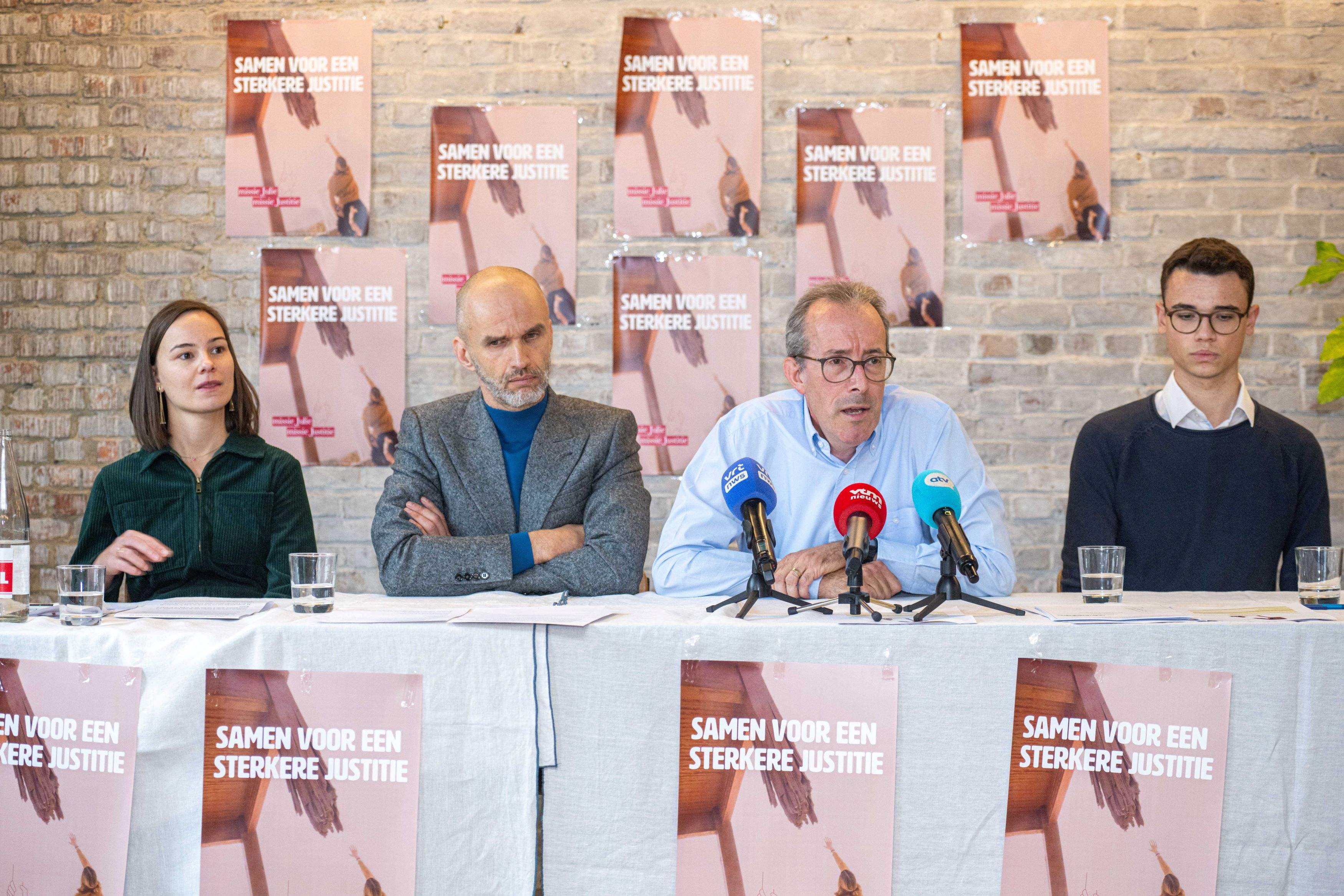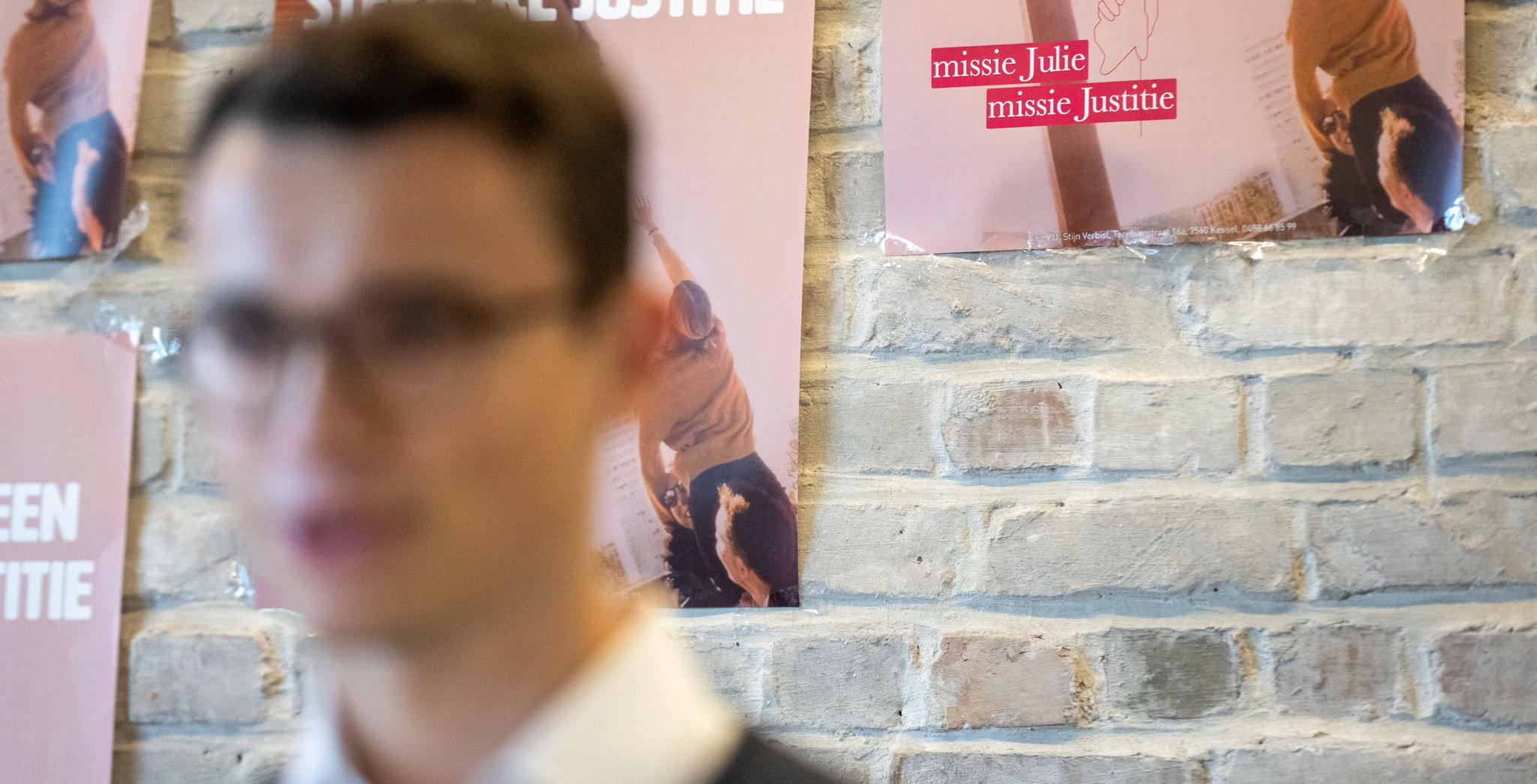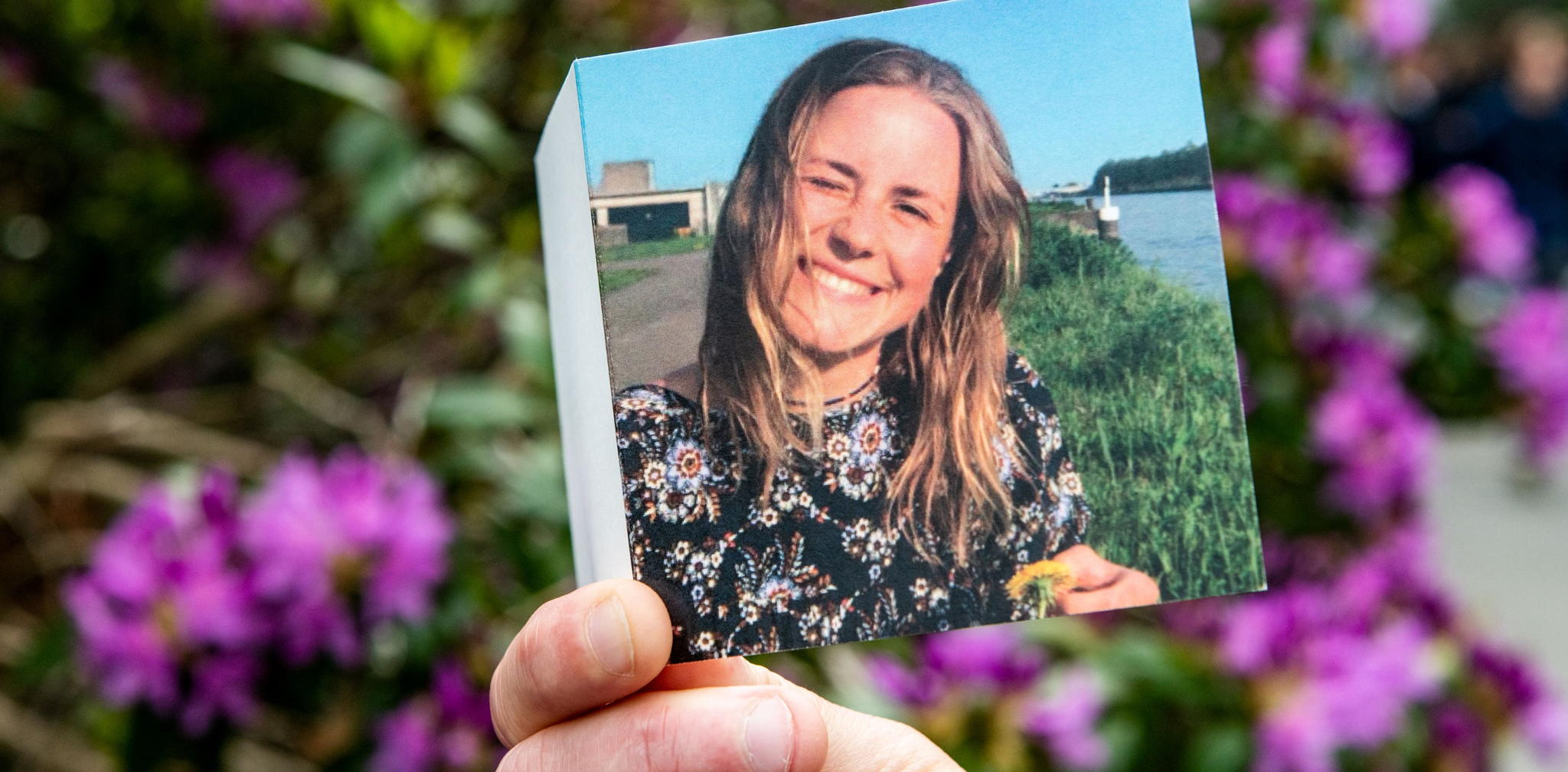Family of murdered Julie Van Espen call for overhaul of justice system

The family of Julie Van Espen, the Antwerp woman murdered in 2019, are taking the Belgian state to court for failing in its duty to protect citizens. Julie’s family and their lawyer believe she would still be alive if the Justice ministry had been fit for purpose.
Julie, 23, was cycling along the Albert canal on the evening of 4 May 2019 when she was raped and murdered by Steve Bakelmans. In December 2021, the Antwerp assize court sentenced Bakelmans to life in prison for the murder. There was public outrage when it transpired that Bakelmans should have been in jail at the time he attacked Julie.
Two years earlier, in July 2017, Bakelmans had been sentenced to four years in prison for raping his ex-girlfriend. The verdict described him as “an anti-social narcissist with no sense of morality”. He was already a repeat offender by then, having been sentenced to 30 months in prison for raping and robbing a 58-year-old woman in 2004.
"The man should have been in prison on 4 May 2019. Had our country not failed, Julie would be alive today"
Bakelmans appealed against the 2017 sentence. As the judge had not ordered his detention, he remained free until his case was to be heard on appeal. Two years later, when he attacked Julie, the appeal had still not been heard.
In December 2019, the Supreme Judicial Council criticised the Antwerp court of appeal and public prosecutor’s office, which took nine months to bring the case before the court. The court of appeal was supposed to hear the case in May 2018 but failed to do so as the chamber that was due to hear the case was overburdened and the appeal was not seen as a priority.

The Van Espen family are using the conclusions of the council’s report to sue the state. They say the Belgian government has neglected staffing issues in the justice system for years and is therefore partly responsible for what happened.
“The man should have been in prison on 4 May 2019,” said the family’s lawyer, Stijn Verbist. “Had our country not failed, Julie would be alive today.”
The family are also launching a project called Mission Julie/Mission Justice, in an effort to resolve the structural issues in the justice system. As well as an apology and symbolic compensation of 1 euro, they want to force the government to take action about the understaffing of courts, the lack of transparency in the Justice ministry and the long turnaround time of cases.
“These are apologies we’ve never officially received,” Erik Van Espen, Julie’s father, said at a press conference on Friday. “A complaint against the Belgian state seemed the only way to obtain it. We are filing it now, within the five-year limitation period. But we also want to link something positive to it.”
Parallels with Brussels shooting
The family see parallels with failures leading up to the 16 October terrorist attack in Brussels in which two Swedish football supporters were killed. The perpetrator, Abdessalem Lassoued, had escaped from prison in Tunisia in 2011, where he was serving a sentence for attempted murder, and fled to Europe. Asylum claims in Italy, Norway and Sweden were all rejected.
From Italy, where he had been identified as radicalised, he travelled to Belgium and applied for asylum in 2019. His claim was rejected but he remained in Belgium illegally, despite a request from Tunisia for his extradition. He had been flagged by Belgian authorities for potential extremism and an unidentified foreign intelligence service had issued a warning about him in 2016.

“The similarity is correct,” said former Justice minister Vincent Van Quickenborne of Flemish liberal party Open VLD, who resigned after the Brussels attack. “In both cases, a magistrate committed an error. That is why I submitted my resignation. That is also why, after consultation with the Van Espen family, I am submitting, among other things, a bill to thoroughly reform disciplinary law.”
The Mission Julie/Mission Justice campaign poster shows Julie at a war memorial in Geneva in the shape of a broken chair leg. She studied international relations and diplomacy and was passionate about human rights.
“This is how we communicate our sense that Justice is a broken leg, which we want to glue back together and strengthen,” said Andreas Van Espen, Julie’s brother. “We want to work structurally for a workable justice system in Belgium.”
#FlandersNewsService | Julie Van Espen's sister Elise, father Erik and brother Andreas with lawyer Stijn Verbist at a press conference in Lier, Antwerp province © BELGA PHOTO JONAS ROOSENS
Related news

